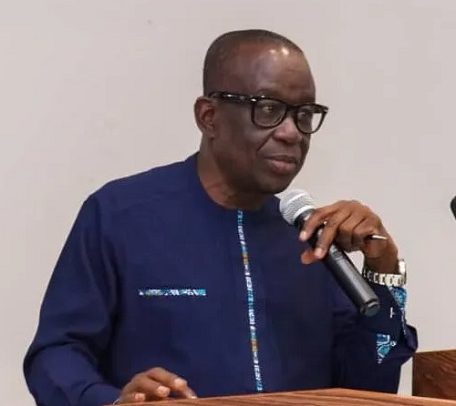In a bid to tackle the menace of illegal mining, known as ‘galamsey’, President Nana Addo Dankwa Akufo-Addo has set up a five-member adhoc Ministerial committee to engage all stakeholders and assess the government’s efforts in dealing with the issue.
The committee is led by National Security Minister, Albert Kan-Dapaah with other high-profile ministers.
The move comes in the wake of renewed public calls on the government to ban all illegal mining activities in the country, following the devastating impact of galamsey on water resources and arable lands.
The Ghana Company Water Limited has warned of an imminent water crisis in the country due to the contamination of rivers and water bodies that supply water to communities.
The committee’s formation is seen as a significant step towards addressing the galamsey problem, which has been a major concern for environmentalists, citizens, and the government.
The committee’s mandate includes engaging with stakeholders, assessing the government’s efforts, and finding solutions to the problem.
Galamsey has been a major problem in Ghana for several decades, with the activity dating back to the 1980s.
However, in recent years, the activity has escalated, with many operators using heavy machinery and other equipment to mine for gold and other minerals thereby polluting water bodies.
The environmental impact of galamsey has been devastating, with many of the country’s water bodies, including rivers and streams, being polluted with mercury and other toxic substances.
The activity has also led to the destruction of forests and lands, and has been linked to the deaths of several people.
In 2017, the government launched a major crackdown on galamsey, with the deployment of the military and police to several mining areas.
The operation, known as Operation Vanguard, was aimed at stopping the activity and bringing the perpetrators to book.
However, despite the efforts of the government, galamsey has continued to thrive, with many operators finding ways to circumvent the law.
The formation of the Ministerial committee is seen as a new approach to tackling the problem, with a focus on engaging with stakeholders and finding sustainable solutions.
The committee’s membership includes some of the most high-profile ministers in the government, including Samuel A. Jinapor, Minister for Lands and Natural Resources; Dominic Nitiwul, Minister for Defence; Ignatius Baffour Awuah, Minister for Employment, Labour Relations and Pensions; and Fatimatu Abubakar, Minister for Information.
With the committee’s formation, there are hopes that the government will finally be able to tackle the galamsey problem and find a lasting solution to the environmental degradation and social problems caused by the activity is tackled head on.
-BY Daniel Bampoe


